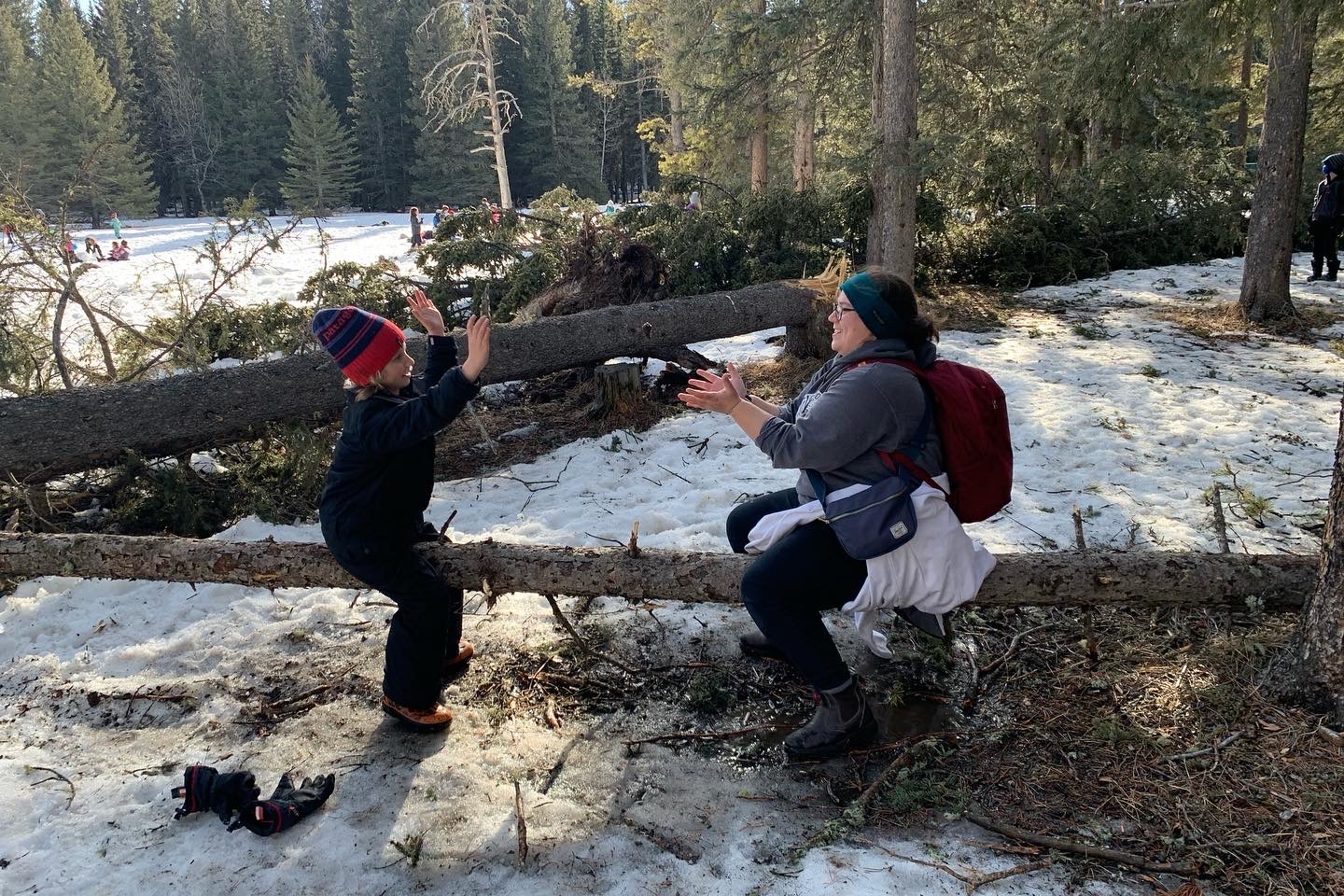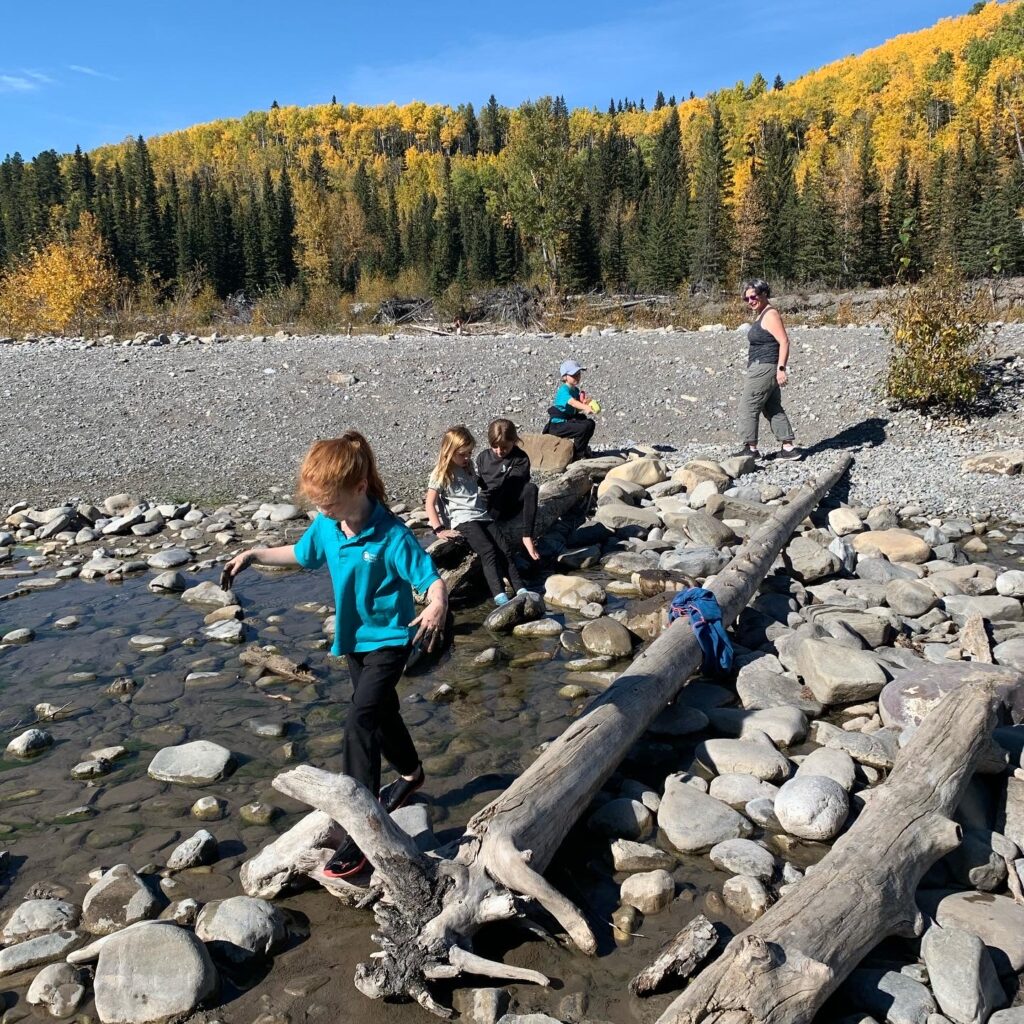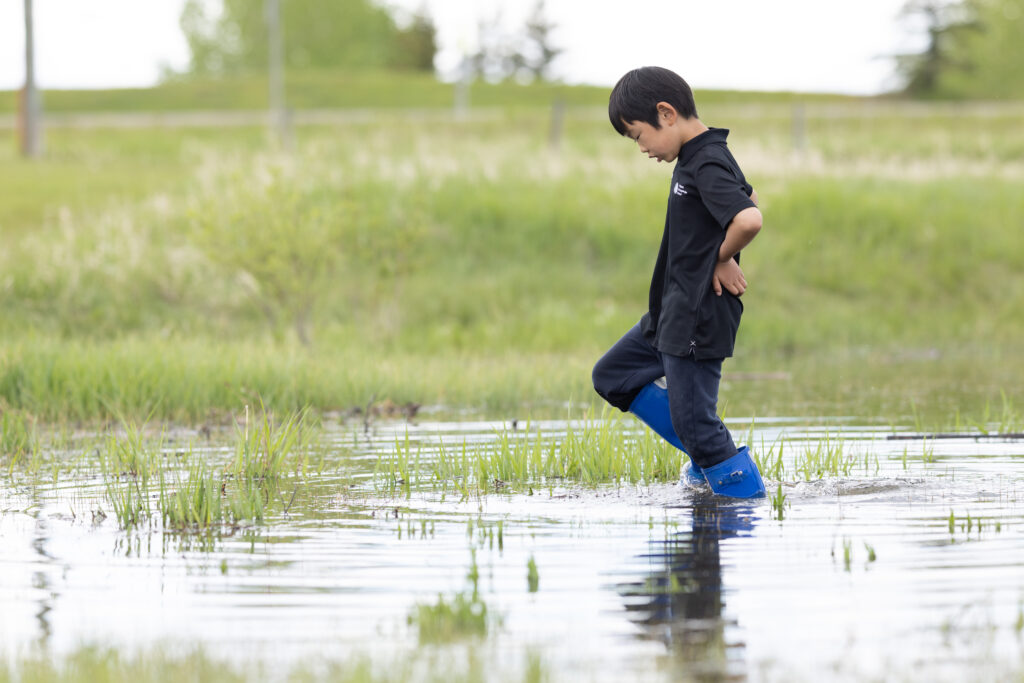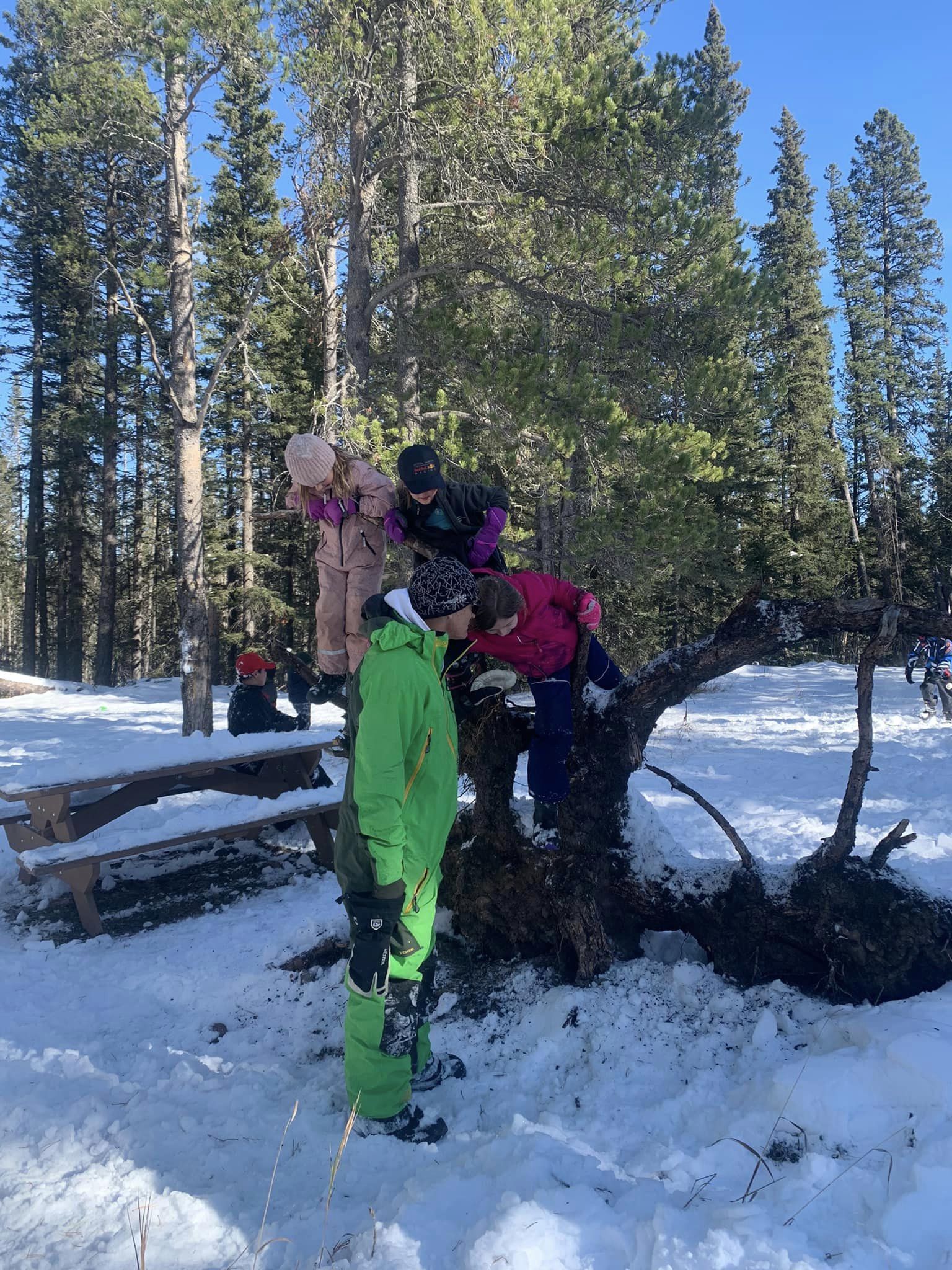
As schools around the country sought a safe way to bring students back to classrooms during the Covid-19 pandemic, many began to embrace the idea of bringing their classes outside for the first time. However, founding members of our school have been promoting outdoor learning for nearly a decade! Now, with more teachers integrating outdoor learning into their schedule, we’re encouraged to see a rising number of children benefiting from it, bolstered by enhanced understanding and support from parents and the broader community.
Every Wednesday afternoon, at the ‘heart’ of our weekly curriculum, stands our unique Forest School program. We are among the very few upper elementary schools in Alberta—and indeed, across Canada—that dedicate regular time to authentic Forest School. Our team boasts multiple certified Forest School practitioners as well as wilderness-trained faculty, eager to impart their expertise. Beyond this weekly immersion, our commitment is unwavering: daily outdoor learning and play are foundational to our educational ethos, ensuring spending time outdoors and in nature is an essential aspect of our students’ experiences.
Extensive research affirms that spending time outdoors offers transformative benefits across multiple facets of student well-being: mental health, physical health, and academic performance. Exposure to nature and the active, hands-on nature of each type of outdoor learning acts as a mental health booster, reducing stress levels and enhancing emotional stability. This calming effect translates to the indoor classroom, creating a holistic educational experience that supports the whole child: mind, body and spirit.
At our school, we go beyond simply 'taking our students outside'. We intentionally incorporate three distinct outdoor educational models into our weekly timetable:
1. Outdoor Learning is when teachers take students outside to learn what is normally taught in an indoor classroom. At our school, most gym and dance classes are outdoors. Additionally, projects that require a lot of space (and mess) such as measurement activities in math or science experiments are perfectly suited for the outdoors. Other examples of outdoor learning might be simply taking students out to read under a tree or while swinging in our hammocks. Even many of our clubs take place outside!
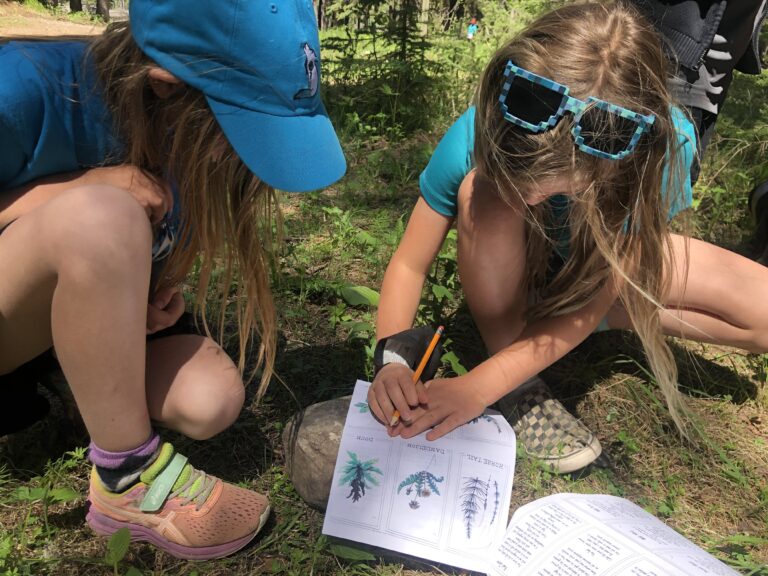
2. Outdoor Education is commonly defined as experiential learning in, for and about the great outdoors. Most often, it is used to refer to a range of organized activities that emphasize teamwork, resilience, environmental education, stewardship and/or responsible outdoor recreation. We combine our Outdoor Education program with our Physical Education program integrating physical literacy, health, teamwork games and outdoor sports. As our students get older, they may go on guided adventures, learn survival skills, or participate in overnight trips. All of our students have outdoor physical education classes several times per week.
3. Forest School is a child-led process centred on the holistic development of each child. Rather than being a one-off structured experience facilitated by adults (as with outdoor education or outdoor learning), Forest School learning emerges organically and is centred around the children’s individual and collective experiences. Forest School typically takes place in the same woodland on a regular basis (on Wednesdays at our school) so children can develop a deeper understanding and relationship with the land, the changing seasons and the natural world.
Forest School is founded on three pillars: Trust, Reciprocal Relationships, and Freedom. Teachers are observers, supporters and ‘guides-on-the-side’ as children play, experiment and explore freely in nature. Even older students who are new to the program begin to engage in imaginative play again after only a few sessions, fostering creative learners and innovative problem-solvers when they return to the classroom. An important aspect of Forest School is that it offers children the opportunity to learn how to assess and take supported risks appropriate to the environment and to themselves building confidence, resilience and independence. There is no better environment to practice our Changemaker Competencies and social-emotional skills than Forest School.
Forest School has a developmental ethos shared by thousands of trained practitioners around the world. Its roots reach back to the open-air culture, ‘friluftsliv’ (free air life) seen as an essential way of life in Scandinavia where Forest School first began. It arrived in the UK, followed by North America, in the late 1990s and has grown in popularity and strength since then. Alberta’s first accredited Nature Kindergarten following the Forest School approach was established in 2015 by a passionate group of parents and educators, including our own school’s founder and Head of School. While it might seem like an option that can only work under ideal weather conditions, our founders have worked with and observed children as young as two years old who safely, successfully and regularly spent entire days outside at Forest School, even in our Alberta winter climates!
Download the Child & Nature Alliance and Forest School Canada Summary Sheet: Principles of Forest/Nature School.
